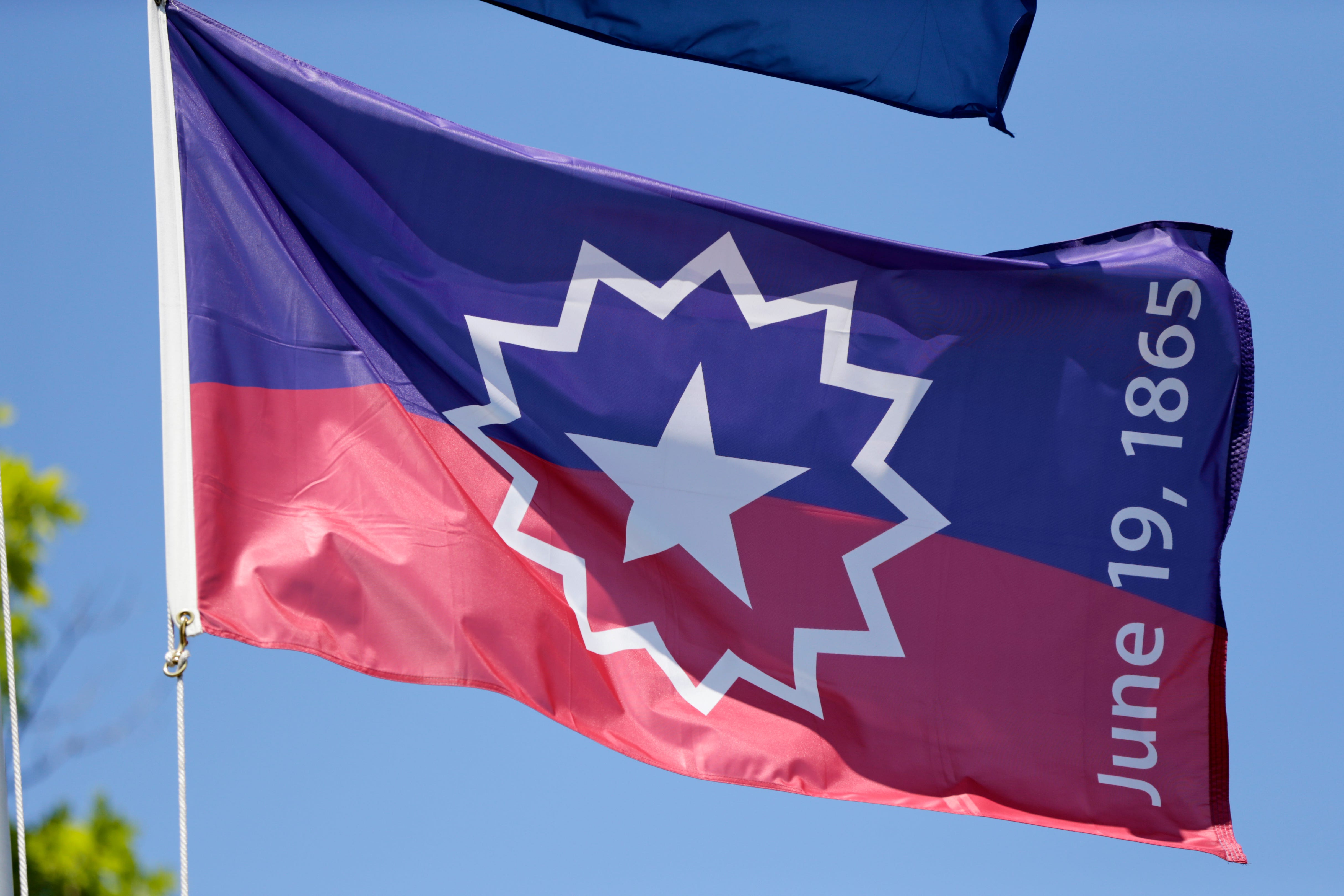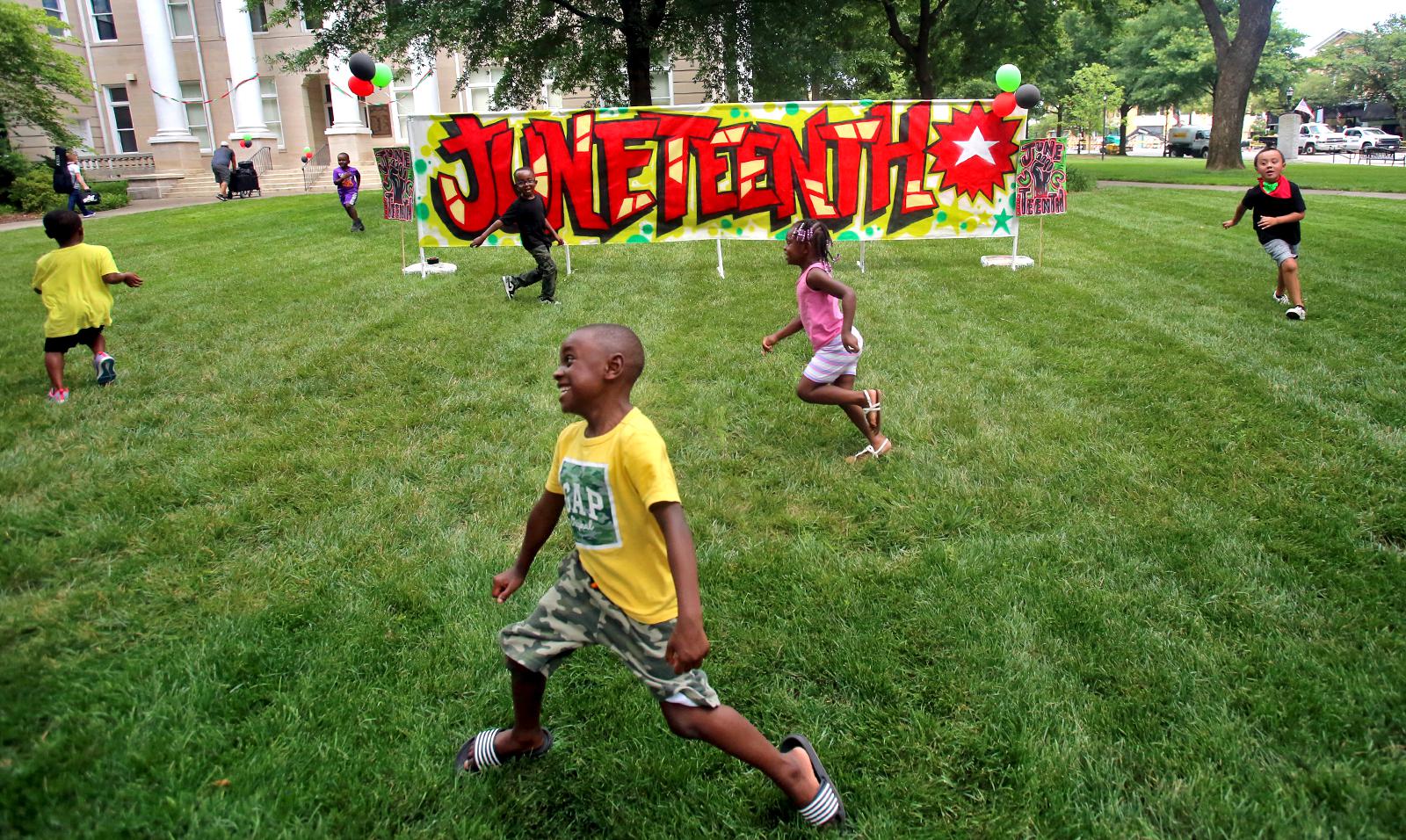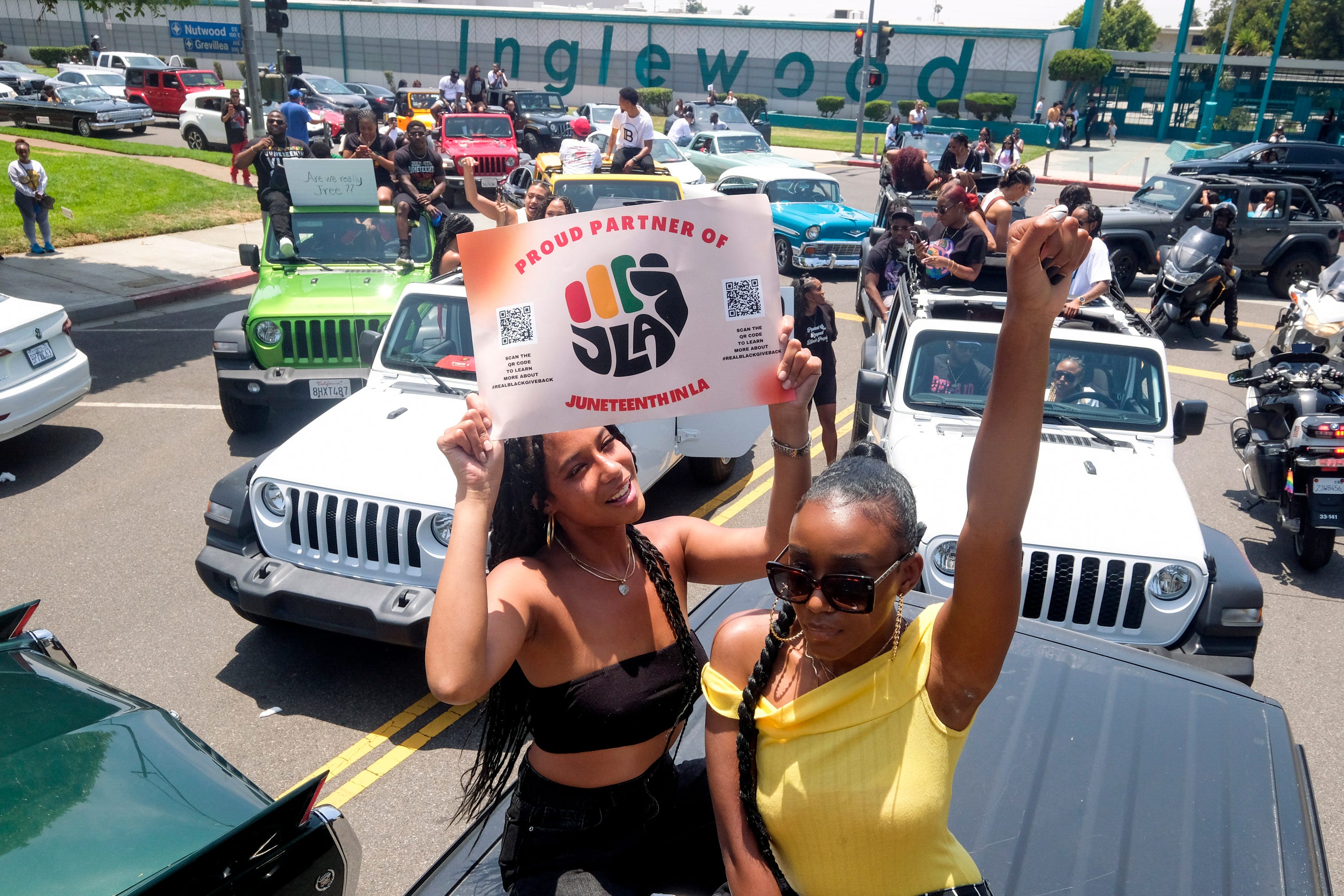.png?width=1600)
Black people in America have always spent too much time running.
Not all. Just too many.
They had to.
Running from oppressors; running to find loved ones after the Civil War; running north as Jim Crow and the Black codes arrived as rebranded racism; running overseas to save Europeans from dictators only to return home to domestic horrors; running to take advantage of federal rulings, policies and practices like the abolishment of racial segregation in the U.S. military, the sluggish integration of public schools, the Civil Rights Act of 1964 and affirmative action.
Fortunate families not only survived but have thrived.
Meanwhile, generations were left behind; they continue to run to catch up.
And now, a fairly new federal holiday approaches where Black people must decide if celebrating this stage in what is an incomplete mission pays homage to ancestors or dishonors them.
As of April, I wasn’t sure. So I sought answers. Rather, I sought permission from my ancestors to co-lead this Juneteenth series.
I took a trip to the National Museum of African American Music in Nashville, where I live. This series has little to do with music, but browsing the halls of such a motivating, enlightening place, I thought, could lead to clarity.
That’s what happened. That’s where I saw it, his words hanging on a wall, an early example of the enslaved code-switching to stay alive, stay sane, remain silently resilient.
“Slaves sing more to make themselves happy than to express their happiness. Every tone was a testimony against slavery, and a prayer to God was for deliverance from chains.” — Frederick Douglass
Little did I know, less than two weeks after spotting this quote from Douglass, the famous abolitionist and orator, I would meet two of his descendants living in Nashville, a city he once frequented.
Then I realized something about Juneteenth.
It’s OK to barbecue. Or have fun at a music festival.
It’s OK to spend the day at a museum, studying Black history with your children.
It’s OK to not know what to do.
It’s OK to do nothing.
It all celebrates freedom.
This Juneteenth series does not intend to tell Americans how to commemorate the day. We hope, instead, that each story will exemplify an honest emotion that we all experience when confronted with a holiday that, with several exceptions, hasn’t established traditions outside the Lone Star State.
Breathe. Gauge. Grub. Discover. Commemorate. Conceal. Celebrate. Educate.
In the meantime, I hope you’ll find a quote that moves you the same as I did.
.png)
***
Juneteenth: A celebration? A remembrance of horrible times? Black voices discuss the federal holiday
.png)
***
St. John Colony, Texas, rejoices for 150 years of Juneteenth jubilees
.png)
***
A night of joy: A Mississippi chef turns Juneteenth into a celebration of Black rural life

.png)
***
As racist laws stifle Black history and humanity, Juneteenth rings bittersweet
.png)
***
Anthony Anderson moved by Black family introduced to lost ancestor in new documentary
.png)
.png)
***
Little known tidbits on Juneteenth, a celebration of freedom in America

.png)
***
Attacks against teaching the history of enslaved Africans and their descendants in America
.png)
***
Want to celebrate Juneteenth? Here are some events taking place across the U.S.
.png)
***
Juneteenth was the first form of the Black social network

.png)
***
'What does it mean to be freed?': What parents are teaching their children about Juneteenth

.png)
***
Juneteenth commercialized
